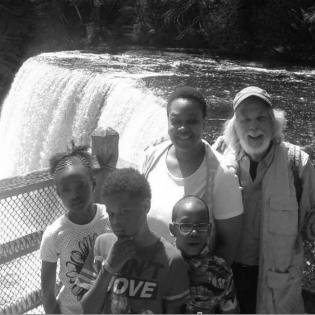We are made by history. In this activity, youth read the stories of philanthropic African Americans and influential related events that made America what it is today.
Filter by subjects:
Filter by grades:
Filter by audience:
Filter by issue area:
Filter by content type:
Filter by resource type:
resource search
Introduction
Learners identify examples of courage from an article about Jackie Robinson.
Rosa Parks' acts of philanthropy brought a community of people together for the common good and resulted in major social change in her community and in the nation. Participants identify a need in the community and take action with personal responsiblity.
Ignite meaningful action that lights up the world through "Service Sparks" youth projects! Young people explore the idea that beauty is defined by the things that make us unique, resilient, powerful, and thoughtful of others. Collect many ideas together and share a message of empowerment to impact the culture of negative body image.
In this lesson, young people compare the communications and strategies of Malcolm X with those of Martin Luther King, Jr. They discuss the causes, effects, and ways to address racism through a discussion forum. They plan and hold the forum in the community.
Through two readings, we learn about racist attitudes and practices in the transportation systems that were supported by Jim Crow laws in the 1940s South. When Rosa Parks refused to give up her seat, it was a final stand after years of injustice and continuous acts of protest. We learn how her...
Self-care and social-emotional well-being are foundational aspects of effective philanthropy. By exploring their own needs and practicing empathy, youth learn to be constructive members of a community from a place of strength and balance. This lesson is best in collaboration with a social worker...
The learners define environmental stewardship and determine what they care about related to the environment.
The youth take action by determining ways to reduce their own use of plastic bags and by advocating for ways to reduce the use of plastic bags in their own households, the community, state and nation. To take further action, they may propose ways to influence government officials...

